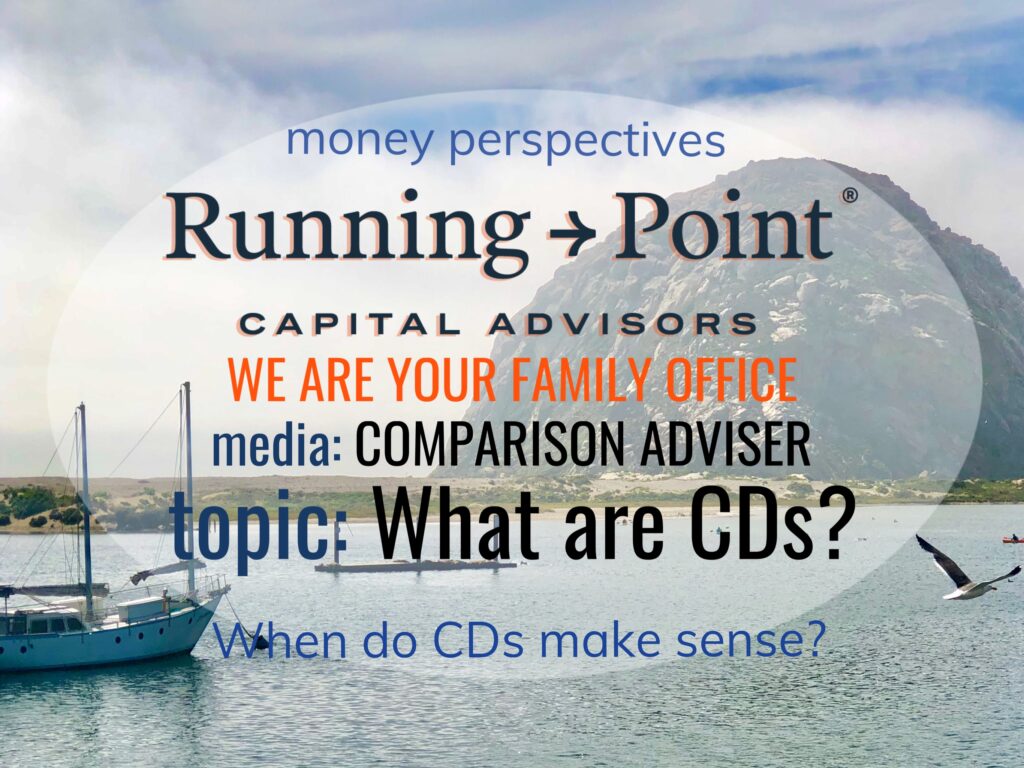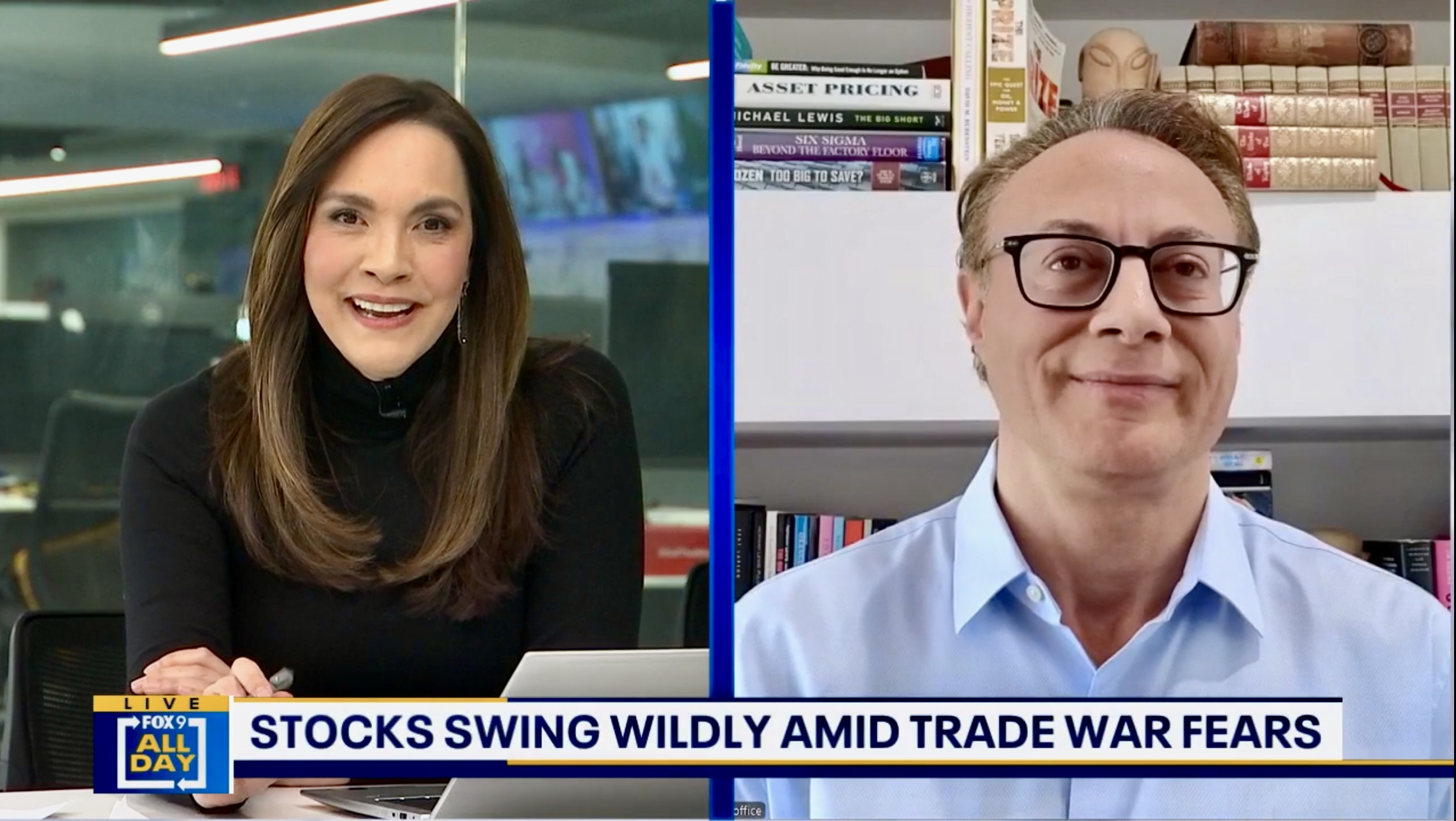What Are Certificates of Deposit (CDs)?
Running Point and its chief investment officer, Michael Ashley Schulman, CFA, were quoted by Comparison Adviser in an article — by Sean Canonica, “What Are Certificates of Deposit (CDs)?” — regarding the variety of certificate of deposits (CDs) available and whether they make sense for you.
What is a CD?
A certificate of deposit (CD) is a financial tool that lets you earn interest on a fixed amount of money for a set period. Unlike regular savings accounts, CDs demand that you leave your funds untouched for the entire agreed-upon term, or you might face penalties or miss out on interest. To make up for the restricted access, CDs often provide higher interest rates than regular savings accounts, motivating individuals to accept reduced liquidity for potentially higher returns.
Note: For more information, you can see our previous write-up on CD Rates.
Quoted article excerpts are below:
Taxes on CD Earnings
Each year, the money you earn from interest with your CD is taxable as ordinary income. Michael Ashley Schulman, a CFA with Running Point Capital, warns that “you’ll pay taxes annually for quite some time on income you can’t access.” Whether you can pay what you owe is a consideration you should make before deciding to open one of these accounts.
Schulman points out that “deciding between a 1-year, 5-year, and a 10-year CD, or any other term, is as much a budgeting question as it is an income question.” This is in large part due to the taxes you’ll need to pay, but also because you need to know if you’ll need the cash in the account sooner. Before opening an account, be sure to think carefully about when you’ll need to withdraw your funds, so you don’t end up taking an early penalty.
Who Should Open a CD
According to Schulman, a CD might be a good choice if “you have a lump sum of money that you won’t need for a specific period and you’re comfortable with locking in your funds for a set term.” In other words, you’ll need to make sure you don’t miss the money you put away because you won’t be able to access it.
How safe are certificates of deposit?
CDs are one of the safest types of investments you can make, especially if your funds are FDIC-insured. However, there is still some risk because a given financial institution could somehow go out of business and lose your money. Schulman recommends you “take extra care regarding the reputation and financial stability of the bank, credit union, or other financial institution you are dealing with to ensure the safety of your investment.” For instance, while smaller banks may offer higher rates, a larger one might carry less risk of losing your money.
What are some alternatives to CDs?
There are a few alternatives to CDs you can and should consider. Per Schulman, “money market accounts, savings accounts, and government bonds (T-Bills and Treasuries)” are all other options you might consider. And, according to him, “if you seek easy access to your money and want to be able to write checks or make withdrawals, a money market account might be a better choice.”
Government bonds, or T-Bills, may also be a smart choice if you’re worried about paying taxes on earnings. Schulman adds that “T-Bill portfolios can yield approximately 0.75% to 1.5% more than money market accounts” and that income from them isn’t subject to taxes as CDs and money market funds are.

Change yourself and fortune will change.
Portuguese Proverb
Disclosure: The opinions expressed are those of Running Point Capital Advisors, LLC (Running Point) and are subject to change without notice. The opinions referenced are as of the date of publication, may be modified due to changes in the market or economic conditions, and may not necessarily come to pass. Past performance is not indicative of future results. Forward-looking statements cannot be guaranteed. Running Point is an investment adviser registered with the U.S. Securities and Exchange Commission. Registration does not imply a certain level of skill or training. More information about Running Point’s investment advisory services and fees can be found in its Form ADV Part 2, which is available upon request. RP-23-88


